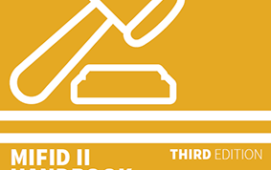
Last week, interoperability provider interop.io announced their collaboration with Infront, the European financial market data solutions provider, to enhance the front office trading platform for Deutsche Numis, by integrating their core Fidessa platform with Infront’s retail service provider quotation (RSP) solution.
This is a great example of interoperability in action, as discussed in depth during a panel session at A-Team’s recent ‘Buy and Build’ event in London, ‘Leveraging interoperability – laying the foundations for unique best of breed solutions.’
One of the expert panellists at that session was Reena Raichura, Director, Head of Product Solutions at interop.io, who TradingTech Insight caught up with following the announcement of the Infront partnership, to find out more about how it fits in with the company’s strategy.TTI: Reena, at the recent Buy and Build event, you spoke about how important it is to grow ecosystems of interoperable applications. This latest announcement seems very much in line with that approach.
RR: Yes, these are the kinds of ecosystems our clients want. And we’re seeing patterns emerge. Generally, if you go to a sell-side broker, depending on what tier they are, they tend to have the same third-party applications. And similarly on the buy side, whether in fixed income or in equities, again, the vendor ecosystem is always a common theme or pattern. Creating ecosystems of those applications and making them interoperable with each other is completely in line with our strategy.
TTI: With the successful integration of Infront and Fidessa at Deutsche Numis using the interop.io platform, does this set a precedent for similar integrations at other mutual clients of Fidessa and Infront? And could this approach also be applied to firms using Fidessa and/or Infront in conjunction with other applications?
RR: Absolutely, this integration opens up numerous possibilities. We already have several Fidessa clients, largely due to our vendor ecosystem aligning well with their application landscapes. For instance, firms like Stifel, Redburn, and Numis are prime examples. Our deep expertise in Fidessa plays a significant role here. And while the Deutsche Numis project focused on Fidessa and Infront, the approach isn’t limited to these two. We could easily adapt it for combinations like Fidessa and Bloomberg, which is what we did at Redburn, for example.
Another example, and one that showcases total interoperability, is Stifel, where we developed a bespoke in-house application with one of our partners. This involved integrating multiple Fidessa systems into a consolidated order book blotter and then streamlining workflows between their local Fidessa systems.
Generally, our workflow solutions start with integrating two or three applications, but they often expand, much like a spiderweb, to encompass more complex systems and needs.
TTI: How do you see your partnership with Infront progressing from here?
RR: With Infront now being interop-enabled, it opens up a range of possibilities for integration. Any firm looking to connect other applications to Infront, or those wanting to utilise Infront for their Retail Service Provider (RSP) solutions – whether it’s an in-house or third-party system – can easily do so. We have a well-established vendor ecosystem that’s ready for such integrations. The successful implementation at Deutsche Numis has already sparked interest among our mutual clients with Infront, demonstrating the potential and effectiveness of our approach.
For us, partnership extends beyond merely signing agreements and facilitating introductions; it represents a long-term commitment. Our approach to working with partners typically involves collaborating on joint campaigns, business development, and combined strategy and marketing efforts. This collaboration focuses not only on our existing client base but also on engaging other potential prospects who might be interested.
TTI: From a wider perspective, are there specific sectors where you see significant opportunities for interoperability? Are you focusing on any particular segment, whether it’s the buy side, sell side, fixed income, equities, RSPs, sales traders, or others?
RR: We have identified key areas where we’re gaining traction, particularly in the trading domain. Our initial point of interest often lies in either equities or fixed income, and this applies to both the buy side and sell side. Additionally, we’re making significant inroads in wealth management and operations.
The RSP market is particularly interesting due to the buoyant activity in the retail sector. Everyone’s competing to be the top RSP provider or market maker. Consequently, traders are increasingly focused on equipping themselves with the best tools. Our role is to assist them in achieving this without constraining them to a single, all-encompassing application that might dilute its core functions. We’re empowering users, especially traders, with the freedom to choose their preferred RSP platform and seamlessly integrate it with their OMS or any other desktop application. This flexibility is a game-changer, freeing them from vendor lock-in and enabling a truly best-of-breed approach on their desktops. That’s the direction we’re heading towards.
TTI: Thank you, Reena
Subscribe to our newsletter





